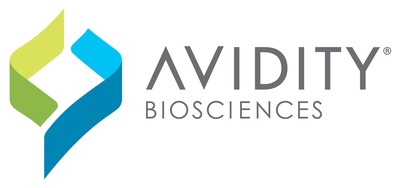Avidity Biosciences Supports World Facioscapulohumeral Muscular Dystrophy (FSHD) Day and Presents Preclinical Data from FSHD Program
Avidity Biosciences (Nasdaq: RNA) announced at the FSHD IRC in Orlando, Florida, preclinical data demonstrating that AOC 1020 can prevent muscle weakness by reducing DUX4 expression, a critical factor in the progression of Facioscapulohumeral muscular dystrophy (FSHD). With approximately 16,000-38,000 patients in the U.S. lacking approved therapies, AOC 1020 is on track for clinical development by the end of 2022. The data showed robust dose-dependent downregulation of DUX4 and prevention of muscle weakness in mouse models, highlighting the potential of AOC 1020 for treating FSHD.
- AOC 1020 demonstrated prevention of muscle weakness in preclinical studies.
- Robust dose-dependent downregulation of DUX4 genes was observed.
- AOC 1020 is on track for clinical trials by the end of 2022.
- None.
Insights
Analyzing...
Oral Presentation at FSHD IRC highlights preclinical data that demonstrated prevention of muscle weakness by reducing DUX4 expression
AOC 1020 on track to be in the clinic by end of 2022 for the treatment of FSHD
SAN DIEGO, June 17, 2022 /PRNewswire/ -- Avidity Biosciences, Inc. (Nasdaq: RNA), a biopharmaceutical company committed to delivering a new class of RNA therapeutics called Antibody Oligonucleotide Conjugates (AOCs™), joins in activities to raise awareness for Facioscapulohumeral muscular dystrophy (FSHD) in support of World FSHD Day and highlights preclinical results supporting AOC 1020 for the treatment of FSHD at the 29th Annual FSHD Society International Research Congress (FSHD IRC) in Orlando, Florida. Currently, there are no approved therapies for the treatment of FSHD.
"We are grateful for our partnership with the global FSHD community as we collectively work together toward developing treatments for one of the most common forms of muscular dystrophy. We continue to work closely with the community to advance AOC 1020 for the treatment of FSHD into the clinic by the end of this year," said Sarah Boyce, president and chief executive officer.
FSHD is a rare, hereditary muscle-weakening condition that affects approximately 16,000-38,000 people in the United States. It is marked by life-long, progressive loss of muscle function and causes significant pain, fatigue, and disability. FSHD is an autosomal dominant disease caused by the abnormal expression of DUX4 (double homeobox 4), a gene involved in embryonic development but not typically expressed in muscles. This abnormal expression of DUX4 leads to a series of downstream events that result in skeletal muscle wasting and compromised muscle function with onset often in teenage and early adult years.
"Our preclinical data, presented at FSHD IRC, support our approach of directly targeting DUX4 with AOC 1020. The data demonstrate that a murine version of AOC 1020 prevents muscle weakness by blocking expression of DUX4 in a FSHD mouse model of disease. These findings are particularly important for progressive diseases like FSHD where aberrant and sporadic expression of DUX4 leads to cumulative damage across different muscle groups," said W. Michael Flanagan, Ph.D., Avidity's chief technical officer.
Every June 20th, people around the world join in activities to raise awareness for FSHD through World FSHD Day and to recognize patients and families around the world who are affected by FSHD. To mark FSHD awareness day, Avidity is participating in the FSHD IRC as well as the FSHD Connect Conference, an educational conference specifically for people living with FSHD and their families. Both conferences are being held in Orlando, Florida and organized by the FSHD Society, the world's largest research-focused patient organization for FSHD.
Oral Presentation at FSHD IRC
Today, Avidity will share preclinical data from the FSHD program during a presentation at the FSHD IRC. Studies were conducted in mouse models of FSHD that are genetically engineered to express human DUX4 in skeletal muscle. AOC 1020 is comprised of a DUX4-targeting siRNA conjugated to the human anti-transferrin receptor 1 monoclonal antibody. The preclinical studies were done using a monoclonal antibody suitable for mice. The preclinical data provides support for AOC 1020 to enter the clinic for the treatment of FSHD by end of 2022.
Key highlights from the oral presentation include:
- Data from a study conducted to assess pharmacology in the mouse model of FSHD showed robust dose-dependent down regulation of DUX4 genes in skeletal muscle for 8 weeks following a single intravenous (IV) dose of the murine version of AOC 1020.
- Data from a study designed to assess phenotype development in the FSHD mouse model showed that a single IV treatment with the murine version of AOC 1020 prevented muscle weakness development demonstrated by three functional assays - treadmill running, in vivo force and compound muscle action potential.
Avidity is also presenting data from a real-world data analysis of patients with FSHD before and after their diagnosis. The results highlight the increased morbidity and medical and financial burden patients face as they progress through their journey living with FSHD.
The presentations will be available later today on Avidity's website at https://www.aviditybiosciences.com on the Publications page.
About Facioscapulohumeral muscular dystrophy (FSHD)
Facioscapulohumeral muscular dystrophy (FSHD) is characterized by progressive and often asymmetric skeletal muscle loss that initially causes weakness in muscles in the face, shoulders, arms and trunk, and progresses to weakness in muscles in lower body. FSHD is an autosomal dominant genetic disease, meaning a single copy of the disease-associated gene, DUX4 (double homeobox 4), is enough to cause the disease. The abnormal expression of DUX4 leads to a series of downstream events that result in skeletal muscle wasting and compromised muscle function, including an inability to lift arms for more than a few seconds, loss of ability to show facial expressions and serious speech impediments. These symptoms cause many people affected by FSHD to become dependent on the use of a wheelchair for mobility. Currently, there are no approved therapies for the treatment of FSHD.
About Avidity
Avidity Biosciences, Inc.'s mission is to profoundly improve people's lives by delivering a new class of RNA therapeutics - Antibody Oligonucleotide Conjugates (AOCs™). Avidity's proprietary AOCs are designed to combine the specificity of monoclonal antibodies with the precision of oligonucleotide therapies to target the root cause of diseases previously untreatable with RNA therapeutics. Avidity is on track to have three programs in clinical development by the end of 2022. The company's lead product candidate, AOC 1001, is designed to treat patients with myotonic dystrophy type 1 (DM1). AOC 1001 is currently in Phase 1/2 development with the ongoing MARINATM trial in adults with DM1.The next programs in the company's advancing and expanding pipeline are AOC 1044, the lead of three programs for the treatment of DMD, and AOC 1020, designed to treat people living with FSHD. Avidity anticipates both programs will enter the clinic by the end of 2022. Avidity is also broadening the reach of AOCs beyond muscle tissues through both internal discovery efforts and key partnerships as the company continues to deliver on the RNA revolution. Avidity is headquartered in San Diego, CA. For more information about our science, pipeline and people, please visit www.aviditybiosciences.com and engage with us on LinkedIn and Twitter.
Avidity cautions readers that statements contained in this press release regarding matters that are not historical facts are forward-looking statements. These statements are based on the company's current beliefs and expectations. Such forward-looking statements include, but are not limited to, statements regarding: the progression of the AOC 1020 pre-clinical or clinical program and timing of a planned clinical trial; the pharmacological activity or duration of action of AOC 1020 in a clinical trial; and the development of treatments for muscular dystrophy. The inclusion of forward-looking statements should not be regarded as a representation by Avidity that any of these plans will be achieved. Actual results may differ from those set forth in this press release due to the risks and uncertainties inherent in the business, including, without limitation: Avidity is early in its development efforts; Avidity's approach to the discovery and development of product candidates based on its AOC platform is unproven, and the company does not know whether it will be able to develop any products of commercial value; potential delays in the commencement, enrollment and completion of clinical trials; disruption to its operations from the COVID-19 pandemic or the war in Ukraine; the success of its preclinical studies and clinical trials for the company's product candidates; the results of preclinical studies and early clinical trials are not necessarily predictive of future results; Avidity's dependence on third parties in connection with preclinical testing and product manufacturing; unexpected adverse side effects or inadequate efficacy of its product candidates that may limit their development, regulatory approval and/or commercialization, or may result in recalls or product liability claims; regulatory developments in the United States and foreign countries, including acceptance of INDs and similar foreign regulatory filings and the proposed design of future clinical trials; Avidity could use its available capital resources sooner than it currently expects; and other risks described in prior press releases and in filings with the Securities and Exchange Commission (SEC). Avidity cautions readers not to place undue reliance on these forward-looking statements, which speak only as of the date hereof, and the company undertakes no obligation to update such statements to reflect events that occur or circumstances that exist after the date hereof. All forward-looking statements are qualified in their entirety by this cautionary statement, which is made under the safe harbor provisions of the Private Securities Litigation Reform Act of 1995.
Company Contact:
Kath Gallagher
kath.gallagher@aviditybio.com
(858) 401-7900
Media Contact:
Cherise Adkins
cadkins@spectrumscience.com
(301) 267-4161
![]() View original content to download multimedia:https://www.prnewswire.com/news-releases/avidity-biosciences-supports-world-facioscapulohumeral-muscular-dystrophy-fshd-day-and-presents-preclinical-data-from-fshd-program-301570152.html
View original content to download multimedia:https://www.prnewswire.com/news-releases/avidity-biosciences-supports-world-facioscapulohumeral-muscular-dystrophy-fshd-day-and-presents-preclinical-data-from-fshd-program-301570152.html
SOURCE Avidity Biosciences, Inc.








